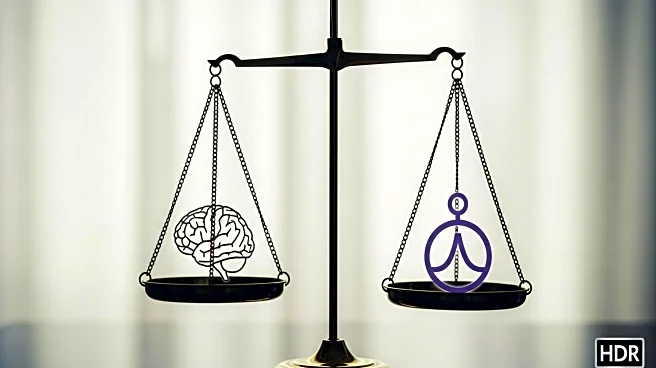What's Happening?
A study published in Nature reveals that inhibiting autophagy in the amygdala alleviates anxiety-like behaviors in a PTSD mouse model. Researchers used lentivirus-mediated shRNA to target Atg7, a key autophagy regulator, in the amygdala of mice exposed to single-prolonged stress. The findings suggest that local inhibition of autophagy in the amygdala can influence anxiety-related behavior, providing insights into the neuronal activity patterns involved in PTSD pathogenesis.
Why It's Important?
The study offers potential therapeutic targets for treating anxiety disorders and PTSD by focusing on autophagy pathways in specific brain regions. Understanding the role of autophagy in anxiety-related behaviors could lead to new treatments that address the underlying molecular mechanisms of PTSD. This research contributes to the broader field of neuroscience by highlighting the importance of autophagy in brain function and behavior.
What's Next?
Further research may explore the effects of autophagy inhibition in other brain regions and its impact on different types of anxiety disorders. Clinical trials could investigate the potential of autophagy-targeting therapies in humans, offering new avenues for PTSD treatment.
Beyond the Headlines
The study underscores the complexity of PTSD and the need for targeted approaches in treatment. It may influence future research on autophagy and its role in other neurological and psychiatric conditions.










